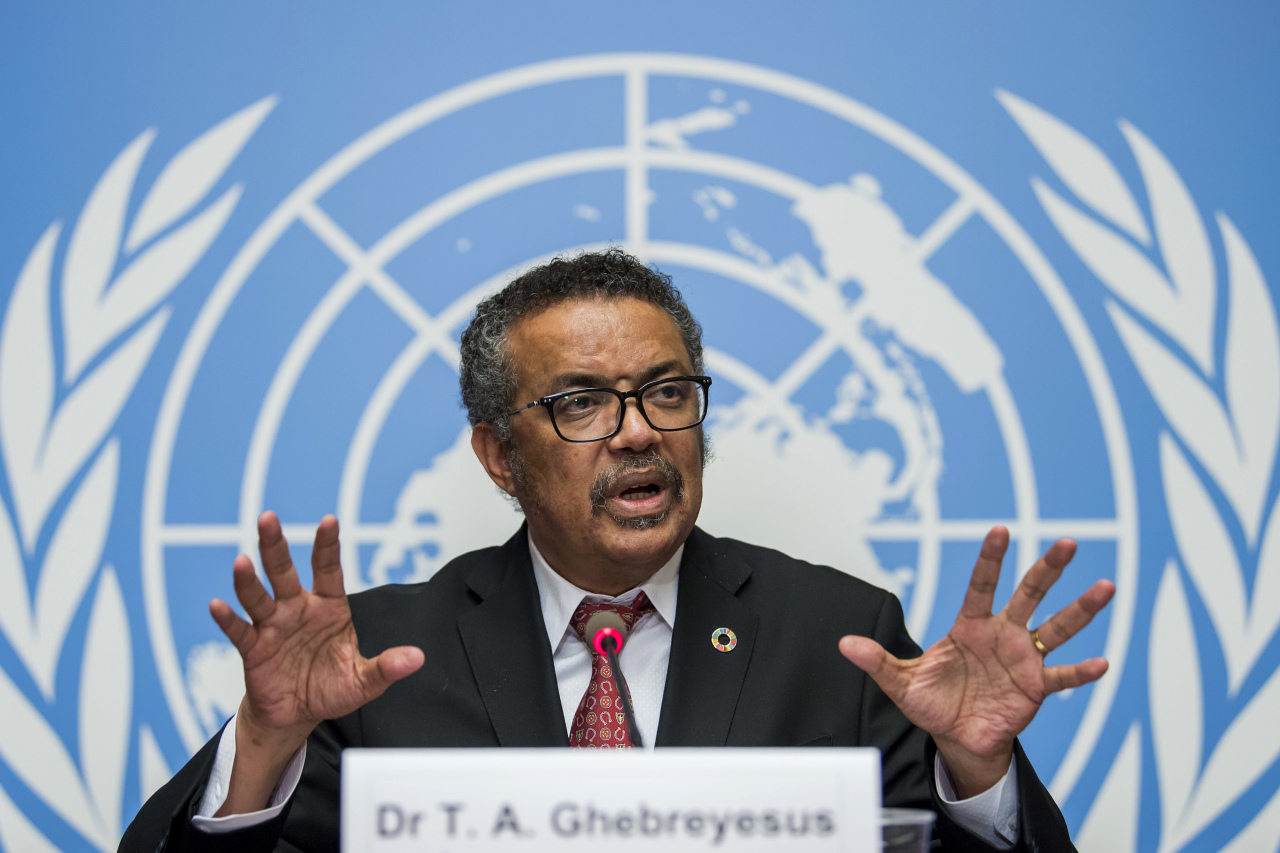 |
(AP-Yonhap) |
'May never go away'
A vaccine could allow countries and economies to fully re-open from lockdowns and potentially earn millions of dollars for its creators.
But the WHO said the virus may never be wiped out entirely.
"This virus may become just another endemic virus in our communities and this virus may never go away," said Michael Ryan, the global health body's emergencies director in Geneva.
"HIV has not gone away -- but we have come to terms with the virus."
The prospect of the disease hanging around leaves governments across the world facing a delicate balancing act between suppressing the pathogen and getting economies up and running.
Trump has been pushing for a swift resumption of economic activity in the US, often against the advice of health officials, as he tries to jumpstart the world's largest economy before a November election.
Top infectious diseases expert Anthony Fauci has said re-opening too soon risks triggering uncontrollable outbreaks, but the president Wednesday dismissed that call for caution as "not acceptable".
In an excerpt of an interview with Fox Business to air in full on Thursday, Trump said: "I totally disagree with him on schools."
The tensions between health and the economy were thrown into sharp relief Wednesday when Federal Reserve chief Jay Powell warned of a potential "wave of bankruptcies" that could cause lasting harm.
Further signs of the damage to businesses emerged Thursday when Lloyd's of London forecast the pandemic will cost the global insurance industry about $203 billion.
And Australia released figures showing almost 600,000 people lost their jobs as the country's virus shutdown took hold in April, the steepest monthly drop in employment since records began more than 40 years ago.
Prime Minister Scott Morrison called the number "terribly shocking".
Border controls
Re-opening of economies continued in earnest across Europe, with officials pushing ahead with plans to restore summer tourism even as fears persist of a second wave of infections.
Desperate to save millions of jobs, the European Union set out proposals for a phased restart of travel, with border controls to be eventually lifted, along with measures to minimise transmission.
Some beaches re-opened in France on Wednesday -- but only for swimming and fishing -- and people in England were allowed to leave their homes more freely.
The return to normality also gathered pace in Asia with Japan set to lift a state of emergency, though not yet in the capital Tokyo and other major cities.
With infections sharply down, Prime Minister Shinzo Abe wants to ease curbs in up to 39 of the country's 47 prefectures.
However, in Latin America the virus continued to surge, with a 60 percent leap in cases in the Chilean capital of Santiago, prompting authorities to impose a total lockdown on the city.
"It should have come a month before, about 20 days before, because there are many infected people," said Juana Vergara, a retiree.
In Argentina, officials were watching Buenos Aires warily after one of its poorest and most densely populated neighbourhoods showed a spike in infections.
But there were also bright spots in the battle. Mauritius declared temporary victory against the virus, saying it had "zero" patients and had not documented a single new case in 17 days.
The Indian Ocean island nation had initially surged ahead of other eastern African countries in terms of caseload, hitting a peak of 332 six weeks into its outbreak. Ten people died.
But following one of the strictest lockdowns in Africa, the country has turned the tide.
"We have won the battle thanks to the cooperation of the public," said health minister Kailesh Jagutpal.
"But we have not yet won the war." (AFP)






![[Today’s K-pop] Blackpink’s Jennie, Lisa invited to Coachella as solo acts](http://res.heraldm.com/phpwas/restmb_idxmake.php?idx=644&simg=/content/image/2024/11/21/20241121050099_0.jpg)
